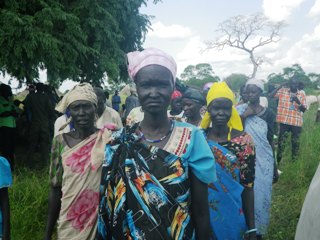Violence against women in S. Sudan among highest world over: report
November 29, 2017 (JUBA) – Violence against women and girls in South Sudan is among the highest in the world, a new survey conducted by the International Rescue Committee (IRC) and the George Washington University’s Global Women’s Institute shows.

Women and girls living in the United Nations civilian protection site in the capital, Juba, were the most vulnerable to sexual violence, it said.
According to the report, the most common forms of violence reported were abuses in homes, committed by husbands or partners.
According to the report, about 33% of the women surveyed in Rumbek, the capital of South Sudan’s Western Lakes state, and those living in UN protection of civilian sites (PoCs) in Bentiu and Juba said they experienced sexual violence from a non-partner, with many incidents related to a raid, displacement or abduction.
IRC’s Chief Executive Officer, David Miliband, said the report presents shocking scale of violence against women in South Sudan.
“This important research shows that we need to rethink the threats that women and girls face in conflict zones. Not only are they at risk of attack from armed men and gangs but, tragically, they are at risk within their own homes, from partners and family members,” he said.
According to the UN, gender-based violence (GBV) is persistent and a serious problem in South Sudan as 98% of the GBV incidents recorded in war-torn South Sudan in 2016 affected women and girls.
GBV includes acts such as rape, sexual assault, domestic violence, forced and early marriage that affect women, girls, boys and men.
The world body said gender-based violence has been fueled by decades of armed conflict, social, cultural and economic factors.
Nearly four years of a bloody civil-war in South Sudan has killed tens of thousands of people with an estimated up to 4 million people displaced both internally and externally since conflict broke out in 2013.
(ST)
